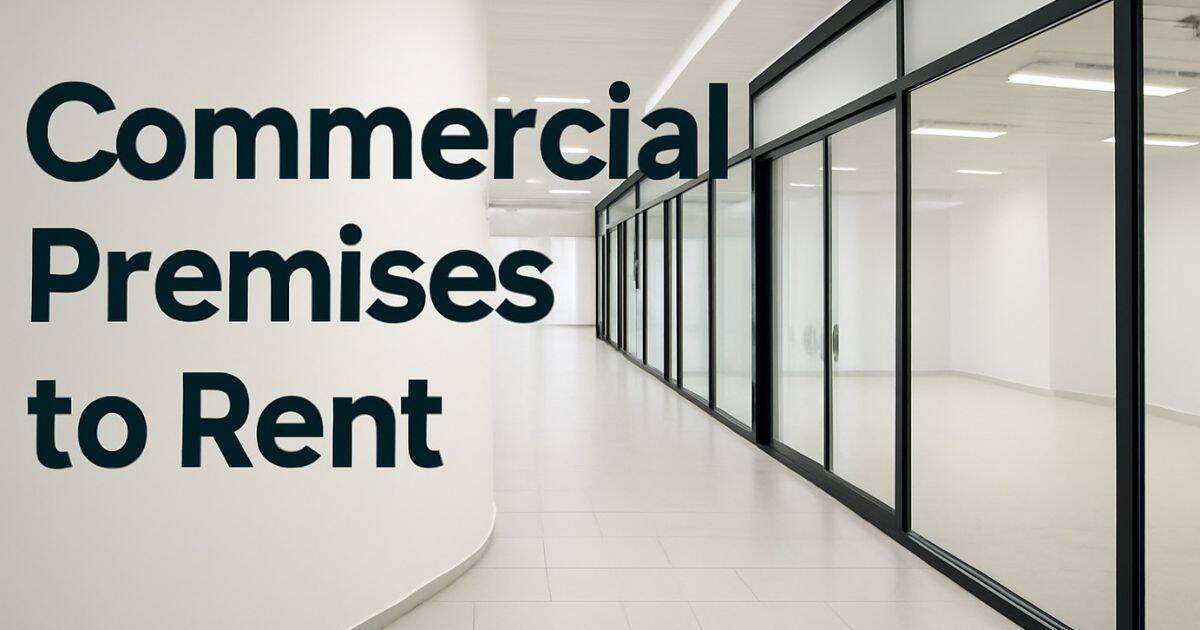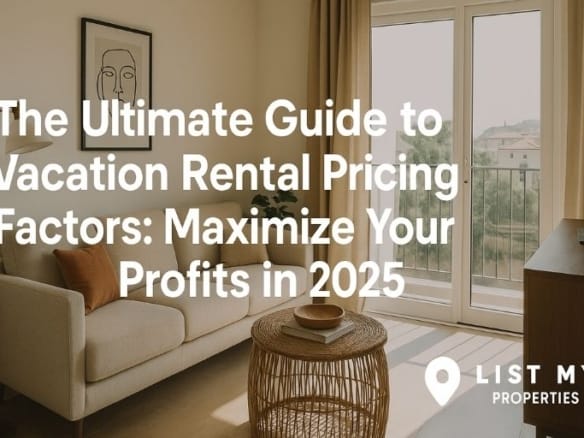Searching for commercial premises to rent can be a daunting yet rewarding process. Whether you’re an entrepreneur launching your first business, a growing company expanding operations, or an investor seeking opportunities in the commercial real estate marketplace, understanding how to navigate the leasing landscape is crucial. This comprehensive guide will walk you through everything you need to know about finding, evaluating, and securing the perfect commercial space that aligns with your business needs.
Table of Contents
Understanding Commercial Real Estate: Types of Properties Available for Lease
Commercial real estate encompasses a wide range of property types designed for business use. Each category serves different purposes and comes with unique considerations, making it essential to understand which type best suits your needs.
Office Space: Professional Environments for Business Operations
Office spaces are among the most sought-after commercial properties to rent. These premises cater to businesses requiring professional environments for employees and clients. Whether you’re looking for a small suite in a shared building or an entire floor in a prime office tower, office spaces offer flexibility and convenience.
Key factors to consider when leasing office space include:
- Location: Proximity to transit hubs, business centers, and amenities.
- Size: Ensuring the square footage meets your current and future needs.
- Amenities: Availability of conference rooms, high-speed internet, and on-site management.
For instance, coworking spaces have gained popularity as flexible alternatives to traditional offices. Platforms like WeWork provide scalable solutions tailored to startups and remote teams.
Retail Spaces: High-Traffic Locations for Customer Engagement
Retail spaces are ideal for businesses that rely on foot traffic and customer visibility. These properties are typically located in shopping centers, high streets, or standalone buildings designed to attract shoppers.
When evaluating retail spaces, focus on:
- Visibility: Prime locations with high visibility and easy access.
- Demographics: Matching the local population to your target market.
- Lease Terms: Understanding base rent versus percentage rent structures.
For example, leasing a unit in a bustling shopping center can significantly boost brand exposure and sales potential.
Industrial and Warehouse Spaces: Functional Solutions for Storage and Production
Industrial properties, including warehouses and manufacturing facilities, are essential for businesses involved in production, logistics, or storage. These spaces often feature loading docks, high ceilings, and ample square footage.
Considerations for industrial spaces include:
- Access: Proximity to highways and transportation networks.
- Flexibility: Adapting the space to meet specific operational requirements.
- Cost: Balancing rental rates with functionality and scalability.
Flexible warehouse space options, such as those offered by Flexe, allow businesses to scale their operations without long-term commitments.
How to Search for Commercial Premises to Rent: Tools and Strategies
Finding the right commercial property requires a strategic approach. Online platforms and professional brokers play a pivotal role in simplifying the search process.
Top Online Marketplaces for Commercial Property Listings
Several online platforms specialize in commercial real estate listings, offering tools to filter properties based on location, size, price, and type. Some of the leading platforms include:
- LoopNet: A comprehensive marketplace with detailed property listings and virtual tours.
- CREXI: Known for its modern interface and robust search capabilities.
- Showcase: Offers high-quality photos and immersive property details.
These platforms enable businesses to browse properties efficiently and connect directly with listing agents.
Working with Commercial Real Estate Brokers
Professional brokers bring expertise and industry connections to the table. They can provide access to exclusive listings, negotiate favorable lease terms, and guide you through complex legal documents.
When selecting a broker, look for professionals with experience in your specific property type and location. For example, a broker specializing in retail leases will better understand consumer demographics than someone focused on industrial properties.
Evaluating Commercial Property Locations: Factors That Matter
The success of your business often hinges on the location of your commercial premises. Several factors influence the suitability of a property beyond just rental costs.
Accessibility and Transit Options
Properties with convenient access to public transportation, highways, and parking facilities tend to command higher rents but offer significant benefits. Easy access enhances employee satisfaction, attracts customers, and streamlines logistics.
Local Market Conditions
Understanding the local market is critical. Research area demographics, competitor presence, and development plans that could impact your business. For instance, opening a retail store in a neighborhood experiencing gentrification may present growth opportunities.
Understanding Commercial Lease Agreements: Key Components
Commercial leases differ significantly from residential agreements, featuring more complex terms and greater negotiation potential. Familiarizing yourself with these components ensures you secure favorable conditions.
Common Lease Structures
- Gross Leases: Landlords cover most operating expenses, simplifying tenant payments.
- Net Leases (NNN): Tenants pay additional costs like taxes, insurance, and maintenance.
- Modified Gross Leases: A hybrid approach where certain expenses are shared.
Each structure has implications for your total occupancy cost, so choose wisely based on your financial capabilities and risk tolerance.
Negotiating Favorable Terms
Successful negotiations can save you time and money. Focus on:
- Rental rate escalation clauses.
- Tenant improvement allowances.
- Early termination rights and renewal options.
Working with a real estate attorney during negotiations ensures your interests are protected.
Exploring Flexible Commercial Space Solutions
The commercial real estate landscape has evolved to accommodate businesses seeking greater flexibility. Coworking spaces and short-term leases provide scalable solutions for growing companies.
Coworking Spaces: Collaboration Meets Convenience
Coworking spaces offer furnished offices, shared amenities, and networking opportunities without long-term commitments. These solutions are particularly beneficial for freelancers, startups, and remote teams.
Short-Term Industrial Leases
For businesses with fluctuating inventory needs, flexible warehouse space allows you to rent by the pallet or square foot. This approach minimizes overhead costs while maintaining operational efficiency.
Investment Opportunities in Commercial Real Estate
Investors eyeing commercial premises to rent should evaluate ROI, tenant quality, and market trends. Properties with stable tenants and strong cash flow potential often represent sound investments.
Evaluating ROI on Commercial Properties
Key metrics include rental yield, vacancy rates, and appreciation potential. For example, Class A office buildings in prime locations typically generate higher returns but require substantial upfront capital.
Global Trends Shaping the Commercial Real Estate Marketplace
Sustainability and technology integration are transforming the commercial real estate sector. Green buildings with energy-efficient designs and smart infrastructure are increasingly popular among tenants.
Emerging Markets and International Opportunities
Secondary cities and suburban areas present affordable alternatives to major metropolitan markets. Additionally, international platforms like LoopNet now offer global property listings, expanding opportunities for cross-border investments.
Preparing for Your Move: Transitioning to New Commercial Premises
Relocating to new commercial premises requires careful planning. From tenant improvements to operational transitions, creating a comprehensive timeline ensures a seamless move.
Tenant Improvements and Customization
Most leased spaces require modifications to suit specific business needs. Discuss tenant improvement allowances and timelines with your landlord to avoid delays.
Global Commercial Real Estate Marketplace Trends
The commercial real estate landscape continues to evolve worldwide, with emerging trends shaping how businesses approach commercial premises to rent. Sustainability and technology integration are becoming increasingly important in commercial real estate.
Emerging Commercial Property Markets
While established commercial centers continue to thrive, several emerging markets offer opportunities for businesses seeking affordable commercial premises to rent. These include secondary cities with lower operating costs but growing business communities, revitalized industrial districts, and suburban markets experiencing population growth.
International Commercial Leasing Opportunities
The global marketplace offers expanding opportunities for businesses seeking international presence. Commercial real estate platforms now provide worldwide property listings, allowing businesses to explore international locations more efficiently. When considering international commercial premises to rent, be aware of local lease laws, currency fluctuations, cultural differences, and local market conditions.
Preparing Your Business for a New Commercial Space
Moving into new commercial premises requires careful planning and preparation to ensure a smooth transition. Start by assessing your space requirements, including square footage needs, layout preferences, and specific features required for your operations.
Tenant Improvements and Space Customization
Most commercial spaces require some customization to suit specific business needs. Tenant improvements (TIs) represent the modifications made to a space before occupancy. When negotiating your lease, discuss tenant improvement allowances, approval processes for proposed modifications, responsibility for construction management, and timelines for completion before occupancy.
Creating a Seamless Transition Plan
Relocating a business involves numerous logistical considerations beyond the physical move. A comprehensive transition plan helps maintain business continuity throughout the relocation process. Key elements include communicating the move to customers and vendors, updating business addresses, transferring utilities, scheduling the physical move, and training staff on new facility operations.
Commercial Property Valuation Calculator: Your Easy Guide to Property Values in 2026


Hard Money Lenders No Credit Check: A Complete Guide for Real Estate Investors
Key Takeaways for Finding Commercial Premises to Rent
- Understand different commercial property types and their suitability for your business.
- Utilize online platforms like LoopNet and CREXI to explore property listings.
- Evaluate locations based on accessibility, demographics, and market conditions.
- Thoroughly understand lease terms and negotiate favorable agreements.
- Explore flexible space solutions like coworking and short-term leases.
- Consider both immediate needs and future growth when selecting a property.
Conclusion
Finding the ideal commercial premises to rent involves understanding your business needs, exploring available options, and negotiating favorable lease terms. By leveraging online platforms, working with professional brokers, and staying informed about market trends, you can secure a space that supports your growth and operational goals.
FAQ Section
Can you rent a commercial building to live in?
No, commercial properties are zoned specifically for business use, not residential living. Always check local zoning laws before considering such arrangements.
How much should I pay for commercial rent?
Rental rates vary widely but generally range from $5–$100+ per square foot annually, depending on location, property type, and quality.
Is there a site like Zillow for commercial property?
Yes, LoopNet is considered the commercial equivalent of Zillow, offering extensive property listings nationwide.
How to find tenants for commercial space?
List your property on platforms like LoopNet, work with brokers, and network within industry associations to attract quality tenants.
What is commercial space rent?
Commercial rent includes base rent plus additional costs like taxes, insurance, and maintenance, depending on the lease structure.





Join The Discussion